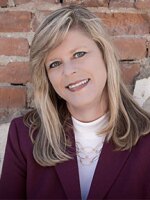Politicians, reporters, pundits and people around the state are remembering a giant of Ohio politics – former Cleveland mayor, Ohio governor and U.S. Sen. George Voinovich.
In a career that spanned four decades, George Voinovich was arguably the most successful politician in Ohio; of the many races he ran, he only lost two of them.
“He was a member of the House of Representatives, he was county auditor, county commissioner, lieutenant governor, mayor, governor and senator. Nobody in Ohio history had that kind of career," says Mike Dawson, press secretary for Voinovich's two terms as governor from 1990 until his election to the U.S. Senate in 1998.

Voinovich came to the governor’s office after nearly 10 years at the mayor of Cleveland, a job he won by defeating Democrat Dennis Kucinich in 1979. And his status as a Republican in deeply blue Cuyahoga County was extraordinary, says former Columbus Dispatch reporter and editor Mike Curtin – who’s now a Democratic member of the Ohio House.
“For a Republican to come out of the Cleveland media market with the kind of support he did made him a very rare political commodity, and really set the framework and the foundation for his statewide success.”
Curtin says Voinovich had as deep a knowledge of government as any person he covered in four decades as a newspaper reporter. And Voinovich called on that experience several times as governor, including during the deadly riot at the maximum security prison in Lucasville in 1994.
'The best we can'
Retired Ohio Public Radio Statehouse News Bureau reporter Bill Cohen remembers a budget crunch in the early ‘90s lead to a tax increase and cuts to welfare benefits for able-bodied adults.
“And at a news conference when he was asked about the criticism, Voinovich got a tear in his eye and his voice cracked and he almost sobb: 'We’re doing the best we can.’ It just gave you the impression that even when he had to make tough decisions like that and controversial decisions he didn’t always feel good about it.”

Federal spending
While in the U.S. Senate, Voinovich railed against federal spending, in keeping with his reputation for frugality, and against the money involved in running for office – though he had no trouble fundraising. He talked about that in an interview with Ohio Public Television in 2010.
“From my perspective, about 20-25 percent of the senator’s time is spent on chasing money.”
He tried to forge bipartisan solutions to our thorniest problems, and that's rare today.
Voinovich’s last year in elected office was 2010. He retired from the U.S. Senate, saying he wanted to spend more time with his family, especially Janet, his wife of more than a half a century.
“This has not been an easy decision for us. I still have fire in my belly to do the work of our nation.”
Voinovich took heat for breaking from the Republican Party line several times in the Senate, including voting for gun control legislation and against defense spending, and advocating for an increase in the gas tax. The Dispatch's Curtin calls him a true centrist.
“And now we’re living in a time where centrists seem to be about as rare as certain species in the Galapagos Islands. I may have had some different opinions from Gov. and Sen. Voinovich from time to time, but he tried to work across the aisle. He tried to forge bipartisan solutions to our thorniest problems, and that’s rare today.”

Voinovich was dedicated to his Catholic faith and devoted to his family. And while he could be prickly and stubborn, he’s also being remembered as kind, decent and compassionate. Dawson says that was important to Voinovich in his work as a public servant.
“What he said often was that it was his way of serving his fellow man and he felt it was God’s calling to do what he did. And every day he tried to make a difference in the lives of the people he served.”
No one ever got a higher percentage of the vote than George Voinovich when he ran for re-election as governor in 1994; he won with 71 percent. Voinovich died in his sleep in his home in Cleveland; he just about a month away from his 80th birthday.





